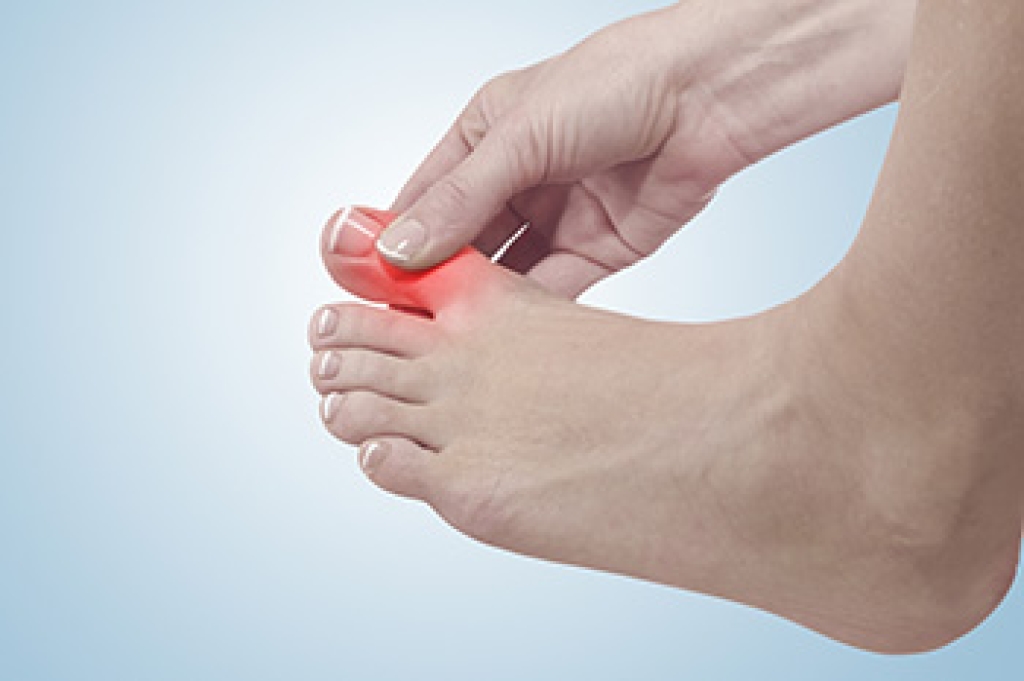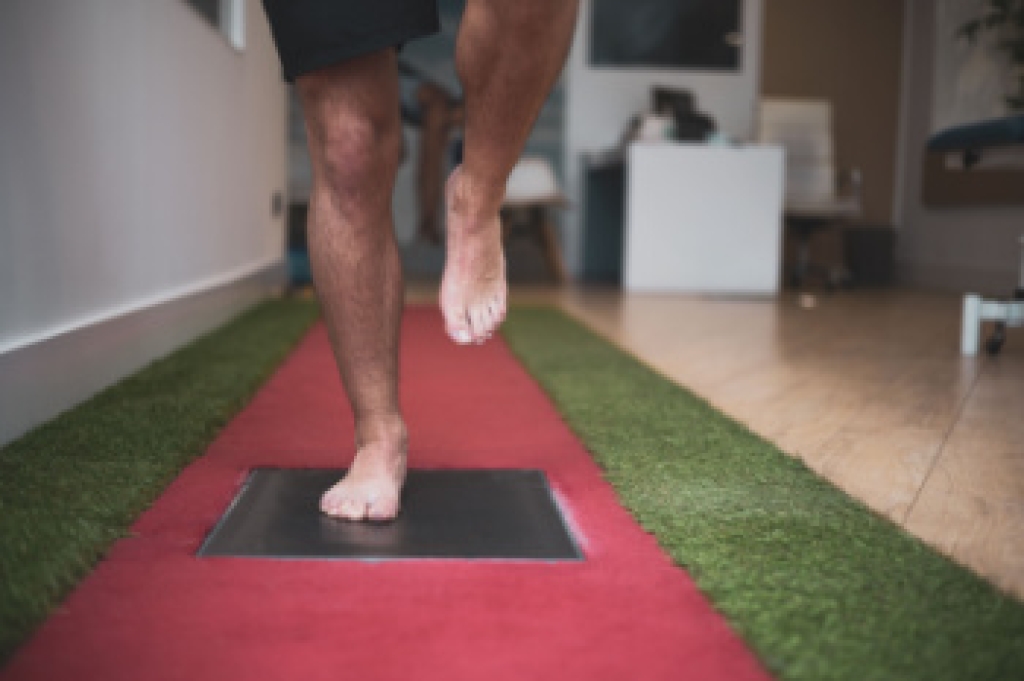Connect With Us
Blog
Blog
Gout and Why the Big Toe Often Suffers First

Gout is a painful form of arthritis caused by the buildup of uric acid crystals in the joints. It often leads to sudden swelling, redness, and intense pain, commonly affecting the big toe. Risk factors include genetics, obesity, a diet high in red meat or alcohol, and certain medical conditions. The big toe is especially vulnerable because it is a cooler area of the body where uric acid crystals are more likely to form. A podiatrist can diagnose gout, manage inflammation, and recommend lifestyle changes to prevent future flare-ups. If you have severe pain in your big toe, it is suggested that you are under the care of a podiatrist who can help you to manage this painful condition.
Gout is a foot condition that requires certain treatment and care. If you are seeking treatment, contact one of our podiatrists from Comprehensive Foot & Ankle Center. Our doctors will treat your foot and ankle needs.
What Is Gout?
Gout is a type of arthritis caused by a buildup of uric acid in the bloodstream. It often develops in the foot, especially the big toe area, although it can manifest in other parts of the body as well. Gout can make walking and standing very painful and is especially common in diabetics and the obese.
People typically get gout because of a poor diet. Genetic predisposition is also a factor. The children of parents who have had gout frequently have a chance of developing it themselves.
Gout can easily be identified by redness and inflammation of the big toe and the surrounding areas of the foot. Other symptoms include extreme fatigue, joint pain, and running high fevers. Sometimes corticosteroid drugs can be prescribed to treat gout, but the best way to combat this disease is to get more exercise and eat a better diet.
If you have any questions, please feel free to contact our offices located in Lehigh Ave and Nazareth Hospital in Philadelphia, Collegeville Darby, and Langhorne, PA . We offer the newest diagnostic and treatment technologies for all your foot care needs.
Exploring the Challenges of Foot Drop

Foot drop is a condition in which a person has difficulty lifting the front part of the foot, often caused by nerve injury, muscle weakness, or neurological disorders such as stroke or neuropathy. It may look like the foot drags while walking, and many individuals develop a high-stepping gait to avoid tripping. Foot drop can feel awkward, tiring, or unstable, and some people notice numbness or tingling along the shin or top of the foot. Foot drop is a symptom rather than a standalone diagnosis, meaning the underlying cause must be identified for proper treatment. A podiatrist can begin by evaluating muscle strength, nerve function, and gait patterns to pinpoint the source of the problem. Treatment options may include bracing to support the foot, custom orthotics, or strategies to improve balance and mobility. Early intervention helps reduce long-term complications and improves confidence while walking. If you notice changes in your walking pattern or difficulty lifting your foot, it is suggested that you make an appointment with a podiatrist.
Foot Pain
Foot pain can be extremely painful and debilitating. If you have a foot pain, consult with one of our podiatrists from Comprehensive Foot & Ankle Center. Our doctors will assess your condition and provide you with quality foot and ankle treatment.
Causes
Foot pain is a very broad condition that could be caused by one or more ailments. The most common include:
- Bunions
- Hammertoes
- Plantar Fasciitis
- Bone Spurs
- Corns
- Tarsal Tunnel Syndrome
- Ingrown Toenails
- Arthritis (such as Gout, Rheumatoid, and Osteoarthritis)
- Flat Feet
- Injury (from stress fractures, broken toe, foot, ankle, Achilles tendon ruptures, and sprains)
- And more
Diagnosis
To figure out the cause of foot pain, podiatrists utilize several different methods. This can range from simple visual inspections and sensation tests to X-rays and MRI scans. Prior medical history, family medical history, and any recent physical traumatic events will all be taken into consideration for a proper diagnosis.
Treatment
Treatment depends upon the cause of the foot pain. Whether it is resting, staying off the foot, or having surgery; podiatrists have a number of treatment options available for foot pain.
If you have any questions, please feel free to contact our offices located in Lehigh Ave and Nazareth Hospital in Philadelphia, Collegeville Darby, and Langhorne, PA . We offer the newest diagnostic and treatment technologies for all your foot care needs.
Different Types of Running Shoes

Choosing the right running shoes is key to comfort and injury prevention. Neutral shoes are designed for runners with a natural gait who do not require extra support, offering lightweight cushioning for flexibility. Stability shoes provide moderate support for runners with mild overpronation, helping to maintain proper alignment. Motion control shoes offer maximum support and structure for those with significant overpronation, reducing stress on the feet and ankles. A podiatrist can assess your gait, foot type, and running style to recommend the most suitable shoe. Professional guidance ensures your shoes match your needs, improving performance and reducing injury risks. Wearing the wrong running shoes can lead to foot and ankle discomfort. If this applies to you, it is suggested that you consult a podiatrist who can treat various foot conditions, and guide you on wearing the correct running shoes.
If you are a runner, wearing the right running shoe is essential. For more information, contact one of our podiatrists from Comprehensive Foot & Ankle Center. Our doctors can provide the care you need to keep you pain-free and on your feet.
Choosing the Right Running Shoe for Your Foot Type
To increase performance and avoid the risk of injury, it is important to choose the right running shoe based on your foot type. The general design of running shoes revolves around pronation, which is how the ankle rolls from outside to inside when the foot strikes the ground.
- Neutral runners are able to choose from a wide variety of shoes, including minimalist shoes or even going barefoot.
- Runners who overpronate, or experience an over-abundance of ankle rolling, should choose shoes that provide extra motion control and stability.
- Runners who underpronate, or supinate, have feet that have high arches and lack flexibility, preventing shock absorption. They require shoes with more flexibility and cushion.
If you have any questions, please feel free to contact our offices located in Lehigh Ave and Nazareth Hospital in Philadelphia, Collegeville Darby, and Langhorne, PA . We offer the newest diagnostic and treatment technologies for all your foot care needs.
Pickleball, Heel Pain, and Plantar Fasciitis

Pickleball is a popular sport, but when it is played too often, it may lead to the development of plantar fasciitis. This painful foot condition affects the plantar fascia, which is a band of tissue that connects the heel to the toes. When the plantar fascia is inflamed, irritated, or partially torn, the pain is typically felt in the heel. The discomfort may be worse in the morning upon arising. For that reason, it may be helpful to wear night splints to help keep the plantar fascia in a lengthened position. It is also beneficial to refrain from playing pickleball until the foot has completely healed. However, if pain from plantar fasciitis persists or worsens, it is suggested that you visit a podiatrist who can suggest targeted exercises and other forms of relief to get you back in the game.
Sports related foot and ankle injuries require proper treatment before players can go back to their regular routines. For more information, contact one of our podiatrists of Comprehensive Foot & Ankle Center. Our doctors can provide the care you need to keep you pain-free and on your feet.
Sports Related Foot and Ankle Injuries
Foot and ankle injuries are a common occurrence when it comes to athletes of any sport. While many athletes dismiss the initial aches and pains, the truth is that ignoring potential foot and ankle injuries can lead to serious problems. As athletes continue to place pressure and strain the area further, a mild injury can turn into something as serious as a rupture and may lead to a permanent disability. There are many factors that contribute to sports related foot and ankle injuries, which include failure to warm up properly, not providing support or wearing bad footwear. Common injuries and conditions athletes face, including:
- Plantar Fasciitis
- Achilles Tendinitis
- Achilles Tendon Rupture
- Ankle Sprains
Sports related injuries are commonly treated using the RICE method. This includes rest, applying ice to the injured area, compression and elevating the ankle. More serious sprains and injuries may require surgery, which could include arthroscopic and reconstructive surgery. Rehabilitation and therapy may also be required in order to get any recovering athlete to become fully functional again. Any unusual aches and pains an athlete sustains must be evaluated by a licensed, reputable medical professional.
If you have any questions please contact our offices located in Lehigh Ave and Nazareth Hospital in Philadelphia, Collegeville Darby, and Langhorne, PA . We offer the newest diagnostic and treatment technologies for all your foot and ankle needs.
Blog Archives
- 2025
- 2024
- 2023

